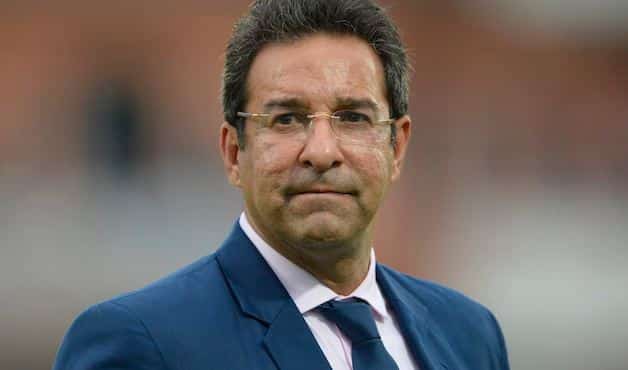Former captain of Pakistan, Wasim Akram, in his his autobiography book, “Sultan Wasim Akram” has given details of his battle with cocaine addiction after his playing career came to an end.
Extracts from his book were published alongside his interview in The Times.
“I liked to indulge myself; I liked to party,” he writes. “The culture of fame in South Asia is all consuming, seductive and corrupting. You can go to ten parties a night, and some do. And it took its toll on me. My devices turned into vices.”
“Worst of all, I developed a dependence on cocaine. It started innocuously enough when I was offered a line at a party in England; my use grew steadily more serious, to the point that I felt I needed it to function,” the great bowler has stated in his revealing autobiography.
Admitting that the drug made him volatile and deceiving, The Sultan of Swing then talks about the effects of his usage on his late wife. “Huma, I know, was often lonely in this time . . . she would talk of her desire to move to Karachi, to be nearer to her parents and siblings. I was reluctant. Why? Partly because I liked going to Karachi on my own, pretending it was work when it was actually about partying, often for days at a time.”
Huma eventually found out, writes Akram, when she discovered a packet of cocaine in his wallet. “‘You need help.’ I agreed. It was getting out of hand. I couldn’t control it. One line would become two, two would become four; four would become a gram, a gram would become two. I could not sleep. I could not eat. I grew inattentive to my diabetes, which caused me headaches and mood swings. Like a lot of addicts, part of me welcomed discovery: the secrecy had been exhausting.”
Talking about his rehab stint, Wasim says, “The doctor was a complete con man, who worked primarily on manipulating families rather than treating patients, on separating relatives from money rather than users from drugs.”
“Try as I might, part of me was still smouldering inside about the indignity of what I’d been put through. My pride was hurt, and the lure of my lifestyle remained. I briefly contemplated divorce. I settled for heading to the 2009 ICC Champions Trophy where, out from under Huma’s daily scrutiny, I started using again.” Akram says the cocaine use ended after Huma’s death in October 2009 from the rare fungal infection mucormycosis.
In his book, Akram incorporated memories from both his personal and professional lives. He also discussed Imran Khan and the 1992 World Cup in the book.
The cricketer allegedly disclosed some significant but previously unreported cricket-related occurrences.







